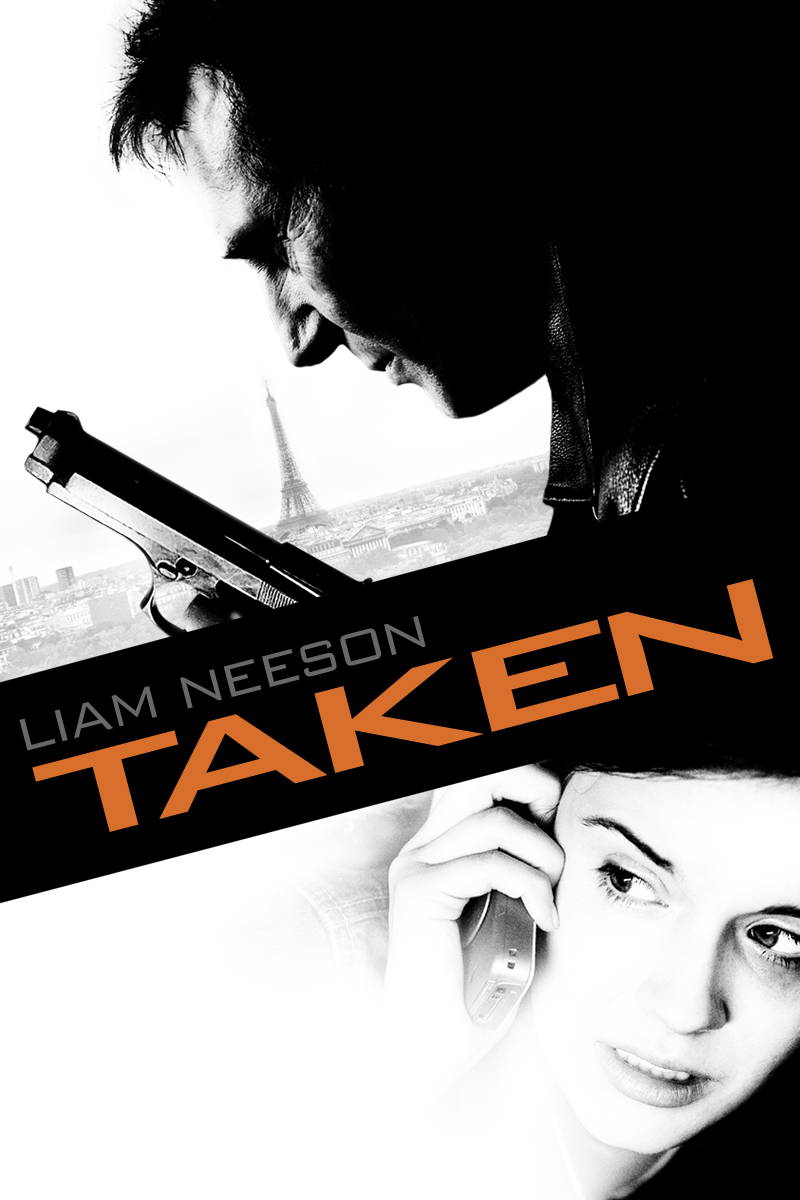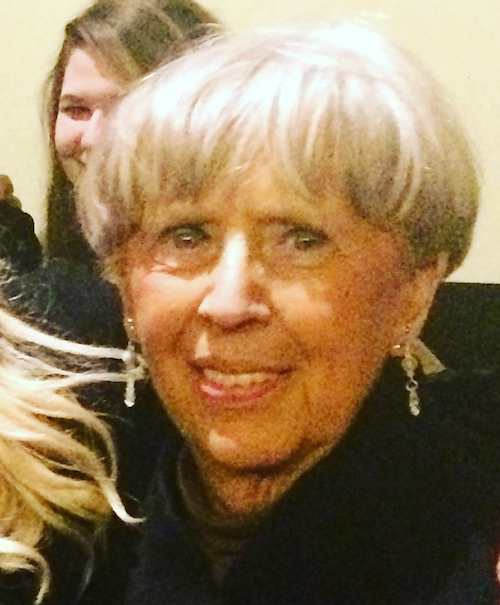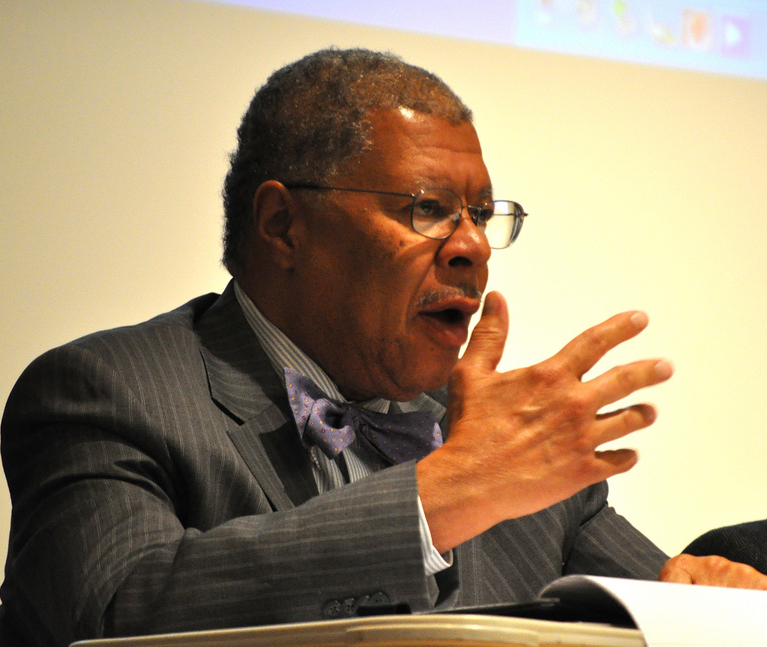Human trafficking fight plagued by bad data, as well as bad guys
Human trafficking has inspired nothing less than a franchise of Hollywood action movies and recently led to charges against the Ingham County prosecutor. But it may remain as one of the least-understood crimes in the current culture.
Michigan Attorney General Bill Schuette convened a commission on it in 2011, which sparked a package of legislation. Even so, most people probably couldn’t define what, exactly, constitutes human trafficking, despite explanatory phrases like “modern slavery.”
Is it about prostitution? Kidnapping? Workers in a field? In a restaurant? Does it have anything to do with the T-shirts selling for an almost unbelievably low price at a fast-fashion emporium? And how bad is the problem?
The answers are yes, no, maybe and we really don’t know. It’s complicated.
Bridgette Carr is a University of Michigan Law School professor who has spent her career advocating for victims of human trafficking. She founded a human-trafficking legal clinic at U-M. She knows as much about the topic as anyone else you’d find in the state. And when you ask her the scope of the problem in Michigan, she shrugs.
“We don’t know,” she said. “We’re not unique in Michigan. It happens here, but I don’t know that it happens more here than anywhere else in America.”
That’s due to misconceptions about the crime as well as honest differences about what constitutes trafficking, both among the public and in law enforcement.
Prostitution, for example, is commonly known as the world’s oldest profession, but authorities sometimes differ on when it rises to human trafficking. That determination increasingly requires police and prosecutors to consider whether a prostitute has voluntarily joined the sex trade, or is working under threat of violence, or in return for promised gains that never materialize. Prostitute or sex trade worker? Victim or perp?
So too, a foreign national who enters the country illegally may be guilty of one crime, but an individual who capitalizes on that person’s secrecy to extort work from him or her is guilty of human trafficking.
Resources abound to sort through these questions, and lawmakers grapple with addressing them, but human trafficking remains a fairly novel concept to the public, falling somewhere on a continuum from the “white slavery” panics of the early 20th Century to modern concerns about illegal immigrants.
Advocates like Carr are trying to change minds. Public officials like Schuette are trying to adjust policy. Law enforcement is trying to keep up.
Yet the issue itself remains mired in questionable, even fake, numbers. The contention that Michigan ranks second in the country in human trafficking cases is repeated often in the news media. It isn’t supported by any available data, said Carr. Nor is it verified that sex trafficking spikes around the time of the North American International Auto Show in Detroit, or at ArtPrize in Grand Rapids, two more claims made regularly by credulous media voices.
At its essence, human trafficking is forcing a person a work under force, fraud or coercion. It can take many forms, from prostitution performed under the influence of a sweet-talking pimp (some pimps police with their fists, some with lies) to an undocumented-immigrant domestic servant working for little or no wages and living in fear of deportation. Victims – and sometimes perpetrators – may be innocent teenagers or experienced criminals, topless dancers or agricultural workers picking vegetables.
“There is no typical case,” said Carr. “It is so varied. There are some commonalities: How vulnerable people can be, through lack of education and family support; perpetrators who are willing to make the choice; consumers and bystanders willing to look the other way.
“But that is not the conversation we often hear around this.”
Too taken with ‘Taken’
The conversation we do hear is encapsulated in what Carr said is the No. 1 question she’s asked when she speaks to the general public: “Will my daughter be safe when she goes on spring break?”
And for that, you can probably blame Liam Neeson.
The success of the actor’s “Taken” films put human trafficking into the public eye, but in doing so postulated that young women are routinely ID’d at airport taxi stands or shopping malls, kidnapped, shot full of drugs and then peddled to rich men who pay high prices for them. And that, said Carr, is simply not typical.
“‘Taken’ was a double-edged sword for the human trafficking world,” said Samantha Vardaman, senior director of Shared Hope International, a victims advocacy group based in Vancouver, Wash. “It put the word on the map, but skewed the look of what it really is.”
A more common sex trade victim, Carr and Vardaman said, would be a woman of any age, living a life full of poor choices or simple bad luck, stuck with a pimp who may beat her, control her access to the drugs she’s addicted to, or simply string her along with a series of empty promises. She may not even realize she’s been trafficked, and she may return to her trafficker after she’s been freed.
“Something bigger and scarier happens in the trafficking world when stories like (the “Taken” myth) are told,” Carr said. “If you don’t match that origin story -- if you’re poor, black, made bad choices, used drugs, are homeless, etc. -- then you are just a prostitute. (The kidnapped young woman from the movies) is a victim, (but the more common, often less sympathetic woman) is a prostitute. That translates into how law enforcement treats my clients.”
The result: When a woman is treated as a criminal rather than a victim, she is less likely to be offered shelter or other resources to help her exit a life she may not have freely chosen, Carr said.
Three little words
Jane White is a retired Lansing police officer who today is director of the Human Trafficking Task Force at Michigan State University (not to be confused with the Human Trafficking Commission, convened by Schuette). Like Carr, she decries the sensationalism directed at the sex-trade part of human trafficking. The three magic words in trafficking are simple:
“Want. A. Job,” White said. It’s enough to attract both the ambitious and desperate, followed by the promise of some gain down the road – money, usually, but sometimes more ambiguous promises of love, commitment, family. Activists say that trafficking happens when the promise isn’t fulfilled.
Victims are sometimes physically restrained from leaving their captors, but often not, said Sgt. Ed Price of the Michigan State Police. A smuggled housemaid, dishwasher or other worker may be in the country illegally, and reluctant to go to the police for any reason.
“Migrants or restaurant workers may be treated badly, not getting paid what they were promised, but they’re making something, and sending it back home,” said Price. “They won’t come forward. They have too much to lose.”
And how many there may be is impossible to say, although numbers abound. The Washington Post’s Fact Checker column devoted several stories in 2015 to verifying commonly cited numbers in speeches, appeals and other communication, and found nearly all were “fishy,” “dubious” or just plain “false.”
No, there very likely aren’t 100,000 U.S. children in the sex trade, the ones who are don’t become victims at 13 (on average), and human trafficking is not a $9.5 billion business in the U.S. – that’s a guess based on more guesses.
Tackling an octopus
The numbers may be fishy, but the work of both the MSU-based task force and the attorney general’s commission was necessary, Carr said, to get victims’ advocates and law enforcement talking about the problem and how to address it.
Human trafficking laws were first passed in Michigan in 2006, and amended in 2010 and 2014, Carr said. They were based on federal laws, but because prostitution is not a federal crime, “they didn’t ‘talk to’ our prostitution laws very well.”
To Carr, White and other advocates, laws concerning prostitution need to recognize that many, if not most, individuals involved are working under some form of force, fraud or coercion, the standard for human trafficking. An early debate on the attorney general’s commission was about how to treat 16 and 17 year olds arrested for prostitution; because 16 is the age of consent for sexual activity in Michigan, any juvenile younger than that was never charged with that crime, but older teens could be.
Carr said victims’ advocates want all 16 and 17 year olds arrested for prostitution to be legally presumed to have been coerced into the trade, with the legal burden placed on prosecutors to show otherwise. But others contend coercion should be an affirmative defense, meaning the defendants themselves would have the burden of showing that they were forced or tricked into sex for pay. In the end, the commission compromised, Carr said; 16- and 17-year-olds arrested for prostitution are now presumed to be victims if they successfully complete a court-ordered program as part of their sentence.
“So they’re not victims because they’ve been exploited, they’re victims if they comply (with the court),” said Carr. “We had some really hard conversations, but those of us at the table understood it wasn’t going to be perfect for anybody.”
Other laws that came out of the commission allowed for medical and psychological treatment for victims, for minors to be referred to the Department of Human Services, for victims to be able to sue their captors, as well as other changes that treat many such workers with more compassion. The reforms were enough to boost Michigan’s ranking for protecting trafficking victims by Shared Hope International from an F to a B.
Better records, better understanding
The ability of anti-trafficking advocates to get buy-in from law enforcement may be mainly a matter of consciousness-raising, said Price, the MSP sergeant, who draws a parallel between trafficking and domestic violence. For years, physical violence between a couple or within a family was either ignored or accepted, and victims got little help breaking away from their assailants. And it took more years for police and others to understand and learn how to deal with both victims and perpetrators.
It was only in 2013 that a separate federal data code for human trafficking was added to the Uniform Crime Reporting Program, the primary means for criminal activity to be tracked for data purposes, Price said. Where before a pimp beating or threatening a woman working for him might be classified as assault, it can now be called trafficking.
As awareness spreads among law enforcement and others, Price said, a clearer picture of the problem should emerge, as the new trafficking code begins to sort the data accordingly.
“Right now the only numbers I trust are from my own task force,” he said.
Police aren’t the only ones who need to be educated. Price said utility workers, building inspectors, hotel staff, doctors, nurses and others who work or come in contact with trafficking-prone businesses should know the signs.
“If you go into a business, maybe a nail salon, and see beds set up, you need to ask yourself, ‘Why are people sleeping here? Why can’t they leave?’” Price said.
Jurors will also need convincing, said U.S. Attorney Barbara McQuade, whose office handles trafficking cases in Michigan that involve interstate business operations.
“They might think, ‘Why didn’t she run away? She wasn’t chained to the floor,’” McQuade said. “But you talk to the victims, and learn they began their relationship with their captors as teenagers. It’s a grooming process. It’s very easy for young people to get caught up in this.” Teens may think they’re running away with an older boyfriend, but “he (gets) all the money, she does all the work.”
Technology complicates the problem. The classified-ad website Backpage.com, is often cited as a contributor to sex trafficking, with its city-specific and voluminous ads for escorts, but it has prevailed in court in the past, winning dismissal of a suit brought by three women who claimed it facilitated their trafficking as underage prostitutes.
A libertarian pushback
Maggie McNeill isn’t convinced more protection is needed. An on-and-off sex worker in Seattle -- a term she prefers to prostitute -- she said she believes newfound concern over trafficking is media-driven catnip, primarily a scare tactic to raise money and spread anti-sex work hysteria. She cites the case of Somaly Mam, a Cambodian advocate for victims who traveled the world, telling hair-raising tales of young women sold into sex slavery, tales that have fallen apart under scrutiny.
McNeill first exchanged sex for money a couple months after her 18th birthday, describing it as empowering and a decision she made entirely on her own. She’s 49 now, and says she can count the number of underage prostitutes she’s come across in her time in the business on one finger, although some of her friends have admitted to doing so before they turned 18.
But McNeill, recently part of a New York Times Magazine cover story asking whether it’s time to legalize prostitution, sees sex work as an affirmative choice that women can and should be able to make without being presumed to be victims.
“I find it fascinating that in this post-feminist age, we have such a low regard for women’s volition and agency,” McNeill said. “We want to believe that a woman can’t make a pragmatic decision (to work in the sex trade), that a man must be behind it.”
Part of the solution, part of the problem
White, at MSU, wishes the conversation around trafficking was less about sex and more about what she sees as the complicity of the rest of the world in forced or unfair labor.
“When you can buy five blouses for $60, what does that tell you about the people who made them? The chocolate industry uses child slave labor. Does the global issue impact me? Yes, it does,” White said. “These are supply-chain issues. This should be taught in business schools.”
Carr said she agrees, but cautions against making any blanket assumptions about the business, or victims.
“In dealing with trafficking, I’m always willing to be surprised. If someone had come to me and said, ‘I am being forced to be a prostitute by the Ingham County prosecutor,’” -- one of the allegations against Stuart Dunnings III, who stepped down after being charged with patronizing prostitutes, as well as trafficking one of them -- “I might not have believed it,” Carr said.
“Some things are stranger than fiction.”
See what new members are saying about why they donated to Bridge Michigan:
- “In order for this information to be accurate and unbiased it must be underwritten by its readers, not by special interests.” - Larry S.
- “Not many other media sources report on the topics Bridge does.” - Susan B.
- “Your journalism is outstanding and rare these days.” - Mark S.
If you want to ensure the future of nonpartisan, nonprofit Michigan journalism, please become a member today. You, too, will be asked why you donated and maybe we'll feature your quote next time!


 The movie “Taken,” with its depiction of unskeptical college students on vacation abducted into the international sex trade, offers an atypical example of human trafficking.
The movie “Taken,” with its depiction of unskeptical college students on vacation abducted into the international sex trade, offers an atypical example of human trafficking. University of Michigan law professor Bridgette Carr says there are no reliable numbers on the scope of the sex trafficking trade in Michigan.
University of Michigan law professor Bridgette Carr says there are no reliable numbers on the scope of the sex trafficking trade in Michigan. Jane White, director of the Human Trafficking Task Force at Michigan State University, said that desperation to find work makes some women susceptible to coercion in the sex trade.
Jane White, director of the Human Trafficking Task Force at Michigan State University, said that desperation to find work makes some women susceptible to coercion in the sex trade. When Ingham County Prosecutor Stuart Dunnings III was charged with patronizing prostitutes in March, it drew attention to the issue of human trafficking.
When Ingham County Prosecutor Stuart Dunnings III was charged with patronizing prostitutes in March, it drew attention to the issue of human trafficking.